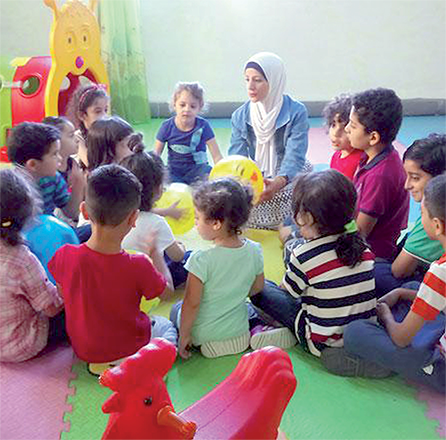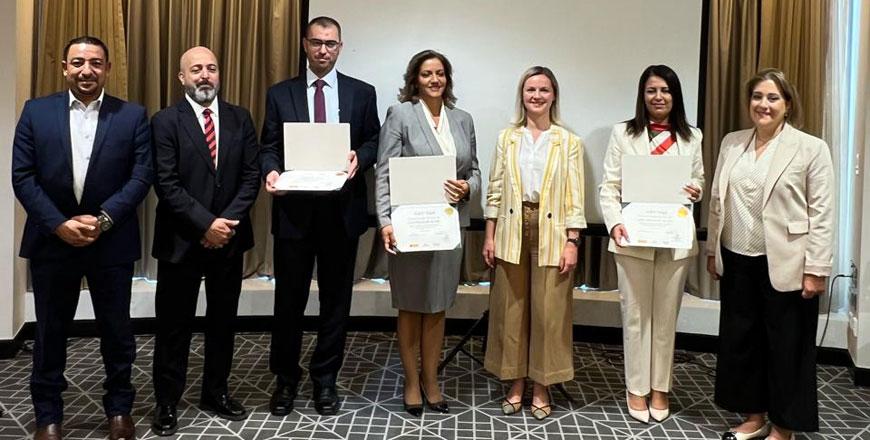You are here
Jordan introduces National Childcare Policy to empower families, boost economy
By JT - Dec 24,2024 - Last updated at Dec 24,2024
AMMAN — Millions of families across Jordan are expected to benefit from the country’s first-ever National Childcare Policy, a "transformative" step to address barriers to affordable, high-quality childcare, build a brighter future for children and boost women’s workforce participation.
This policy, currently under development, is the result of a joint effort between the National Council for Family Affairs (NCFA), the International Rescue Committee (IRC), and national institutions including ministries, local and international civil society organisations, as well as members of the National Early Childhood Development Team, according to an IRC statement.
For years, Jordanian families have faced significant challenges accessing affordable, high-quality childcare services, which placed a heavy burden on caregivers, particularly women, often forcing them to compromise on their career aspirations, either by staying home to care for their children or accepting rare, flexible work options that do not align with their professional goals.
According to the World Bank, Jordan ranks among the lowest globally in female labour force participation, standing at just 14 per cent, largely due to limited childcare options, the statement said.
Around 1.5 million children under the age of five lack access to formal childcare, leaving mothers to shoulder up to 12 hours of unpaid care work daily. Mothers frequently cite “family responsibilities” as the main reason they do not participate in the labour market.
Rasha, a working mother in Amman, said: “I’ve had to turn down job opportunities because I couldn’t find a safe and affordable daycare for my two-year-old.” “This could change everything for families like mine,” she added.
Jordan’s new childcare policy will address these challenges by expanding childcare access through introducing subsidies and grants to make childcare more affordable, especially for low-income families, ensuring no child is left behind.
The policy will also seek to improve quality via implementing a comprehensive Quality Management System to ensure daycare centres meet high safety and care standards, giving parents peace of mind.
It will also empower women by reducing the care giving burden on mothers, enabling more women to enter or rejoin the workforce, boosting family incomes, driving economic growth, and advancing gender equality across the country.
Aligned with the Economic Modernisation Vision, the policy will contribute to recent national reforms like extended maternity leave, supporting working parents and promoting gender equality.
Investing in early childhood and providing care for this age group will have a positive impact on children and their families, where studies show that children who receive high-quality early care perform better in school, earn higher incomes as adults, and enjoy better health.
Secretary-General of the NCFA Mohammad Miqdad highlighted that the initiative aims to establish a stable institutional approach to enhancing the quality of the sector in areas such as health and protection, environment and public safety, integration of persons with disabilities, as well as learning and education in a way that promotes early childhood education.
Country Director for the IRC in Jordan Eka Zhvania said: “This policy is a game-changer for families in Jordan. By removing barriers to affordable childcare, it empowers parents to build better futures for their children and contributes to Jordan’s growth. Every child deserves the chance to thrive, and every parent deserves the support they need to succeed.”
Related Articles
AMMAN — There are roughly 1,100 licensed daycare centres in the Kingdom, said Director of the Family and Childhood Directorate at the
AMMAN — The findings of a study titled “Childcare Services in Jordan: Assessment of Supply and Demand” revealed that low-income households i
AMMAN — The International Rescue Committee (IRC) and the National Council for Family Affairs (NCFA) held on Thursday a ceremony to launch th



















